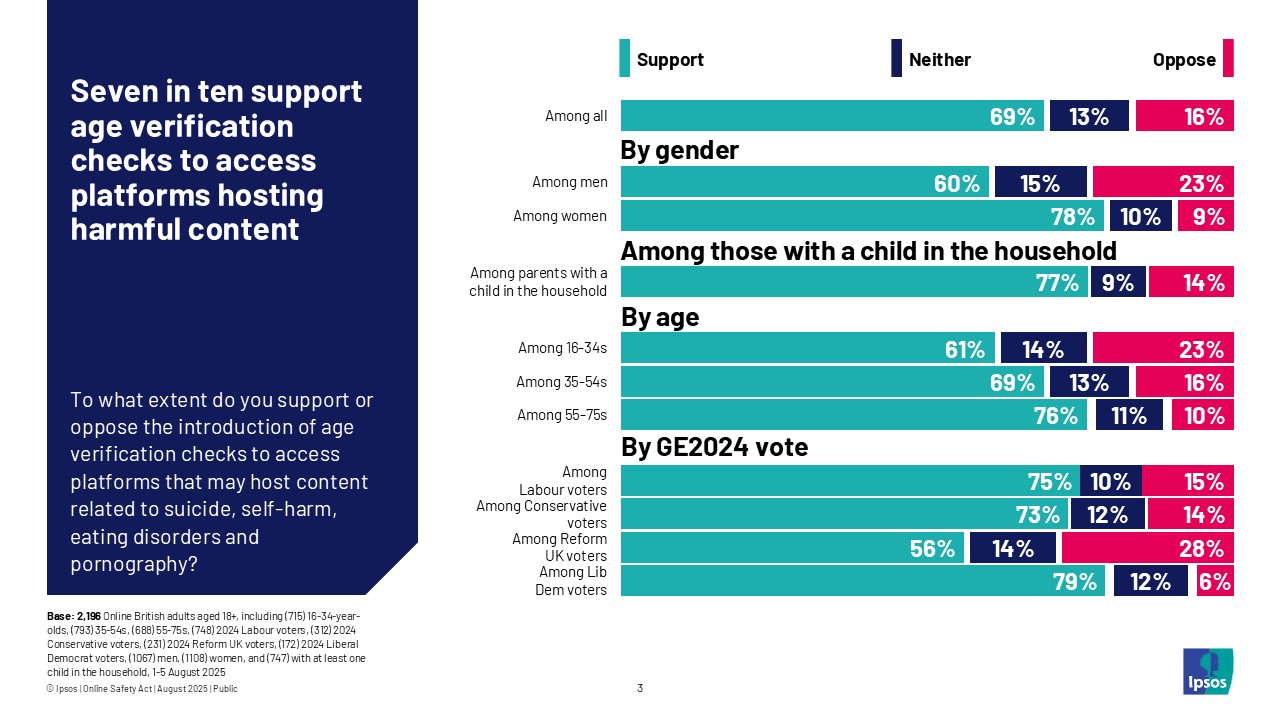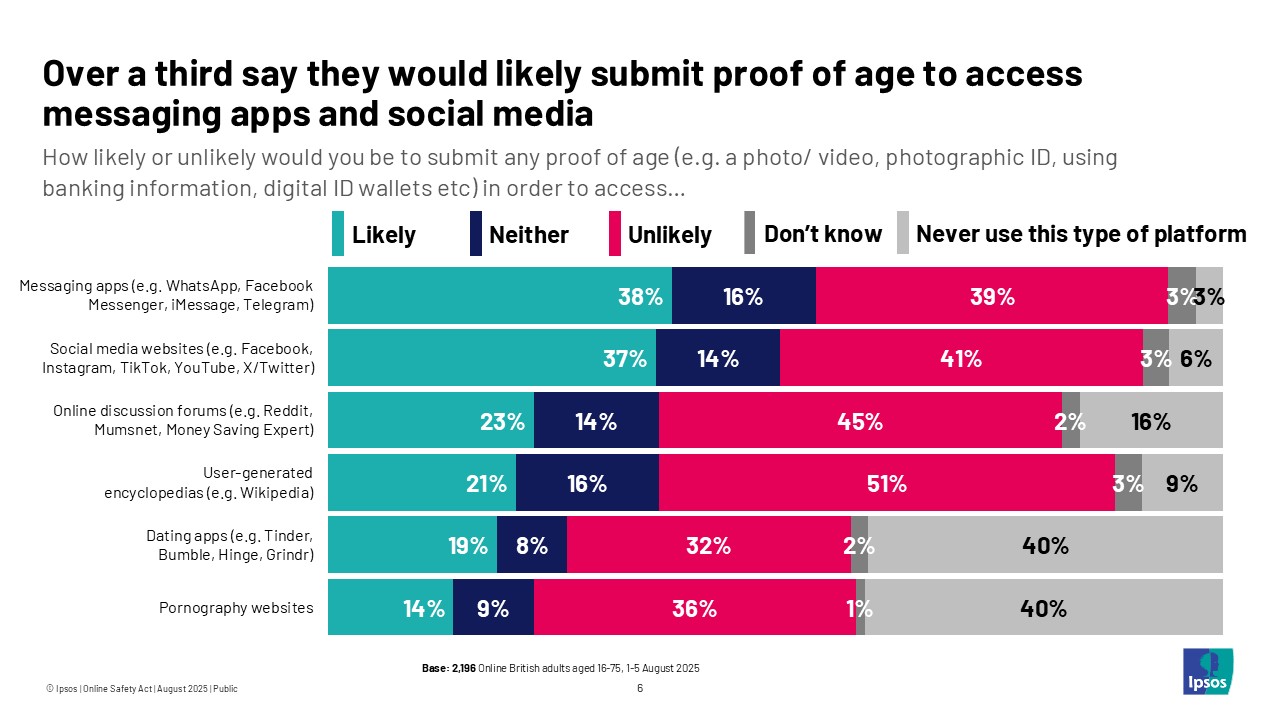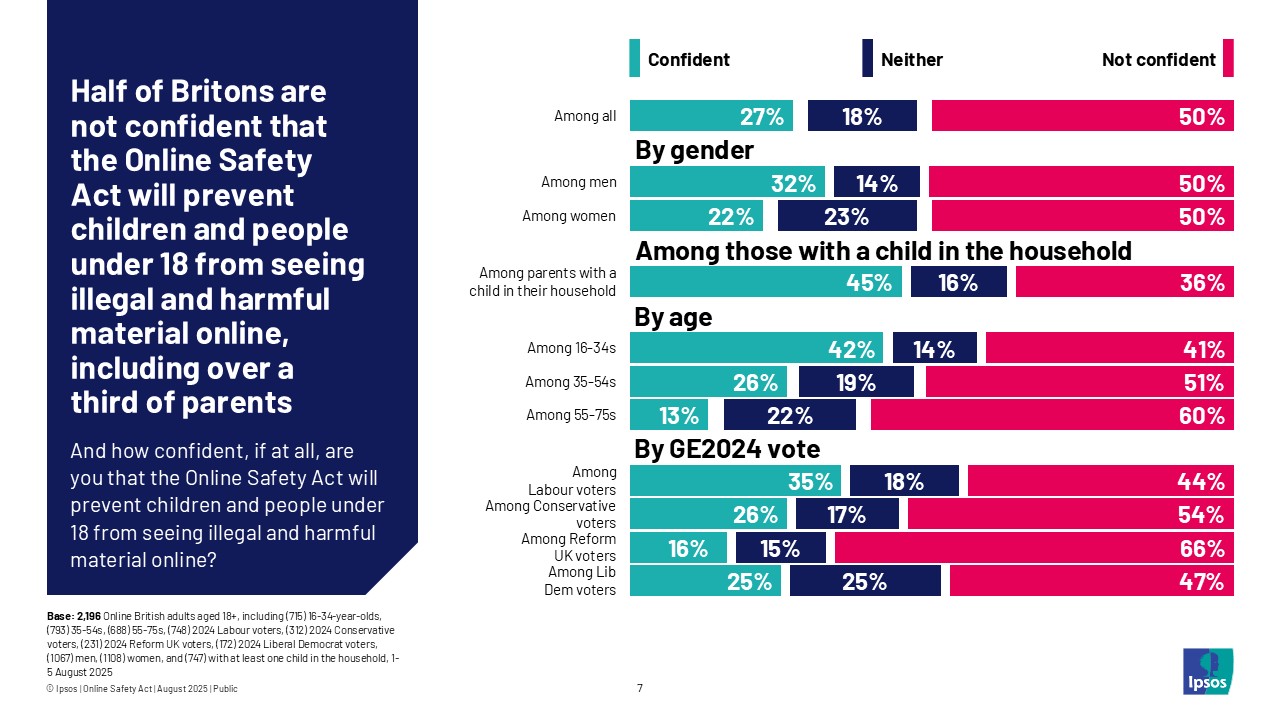Britons back Online Safety Act’s age checks, but are sceptical of effectiveness and unwilling to share ID
New research from Ipsos in the UK shows that while seven in ten Britons (69%) support the introduction of age verification checks to access platforms hosting harmful content, the public is deeply sceptical about the Online Safety Act's ability to protect children and sees risks for data privacy and free speech.
Broad support in principle
- Almost seven in ten (69%) support age verification checks on platforms that may host content related to suicide, self-harm, eating disorders, and pornography.
- This support is strong across the political spectrum, including three-quarters (75%) of 2024 Labour voters, 73% of Conservative voters, and 79% of Liberal Democrat voters. Support is lower among Reform UK voters, but a majority (56%) still support age verifications. Support is higher among women (78%) than men (60%), and higher than average among parents (77%).
- Half (51%) of the public say that they are following stories around the Online Safety Act closely.

But hesitation about compliance
- However, this support in principle does not translate into a widespread willingness to comply. Around half of Britons (48%) say they would be likely to submit proof of age to access a website.
- Across the political spectrum, Liberal Democrats are most likely to say that they will comply (59%), followed by Labour (55%) and Conservative (53%) voters. Just 37% of Reform UK voters say they would be willing to submit proof of age.
- This reluctance extends to different types of platforms. Only around a third would be likely to provide age proof for messaging apps (38%) or social media sites (37%). For user-generated encyclopaedias like Wikipedia, half (51%) say they would be unlikely to submit any proof of age. Just 19% say they would be willing to submit proof of age for dating apps, lowering to 14% for pornography websites.

When asked about specific methods:
- People are most willing to use their email address (56% likely).
- The public is split on using a photo or video of their face (43% likely, 37% unlikely) or photographic ID like a passport or driver's license (40% likely, 41% unlikely).
- There is strong reluctance towards using financial information, with 68% unlikely to use a credit card and 72% unlikely to use their banking information.
Lack of confidence in the act's effectiveness
- Half of the public (50%) is not confident the legislation will prevent children and people under 18 from seeing illegal and harmful material online, compared to just 27% who are confident. Parents are more confident of the Act’s effectiveness, with 45% confident, and 36% not confident.
- Furthermore, an overwhelming majority (69%) believe it will be easy for children and young people to find ways to get around the new safeguarding procedures, with a similar proportion of parents (64%) saying the same.

- The research also highlights public expectations that the Act will lead to unintended consequences. A majority say it will lead to people’s personal data being compromised (61%) and government censorship of online content (58%). In contrast, there is much less belief that the Act will reduce cyberbullying (31%) or make platforms effectively remove illegal content (37%).
Commenting on the findings, Keiran Pedley, Director of UK Politics at Ipsos said:
Our research reveals a significant paradox in public opinion towards the Online Safety Act. While there is a clear and broad desire to protect children online, reflected in the strong support for age verification, this is matched by deep-seated scepticism about whether the Act can deliver on its promises. Data breaches and the potential for censorship are highlighted, as the public doubt these measures will be effective against tech-savvy young people. This creates a major challenge for platform operators and the regulator, Ofcom: how to implement robust age assurance systems that the public actually trusts and is willing to use.
Technical note:
- Ipsos interviewed a representative sample of 2,196 adults aged 16+ across Great Britain. Polling was conducted online between the 1st-5th August 2025.
- Data are weighted to match the profile of the population. All polls are subject to a wide range of potential sources of error.




